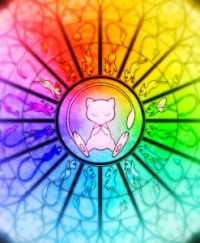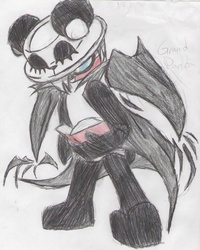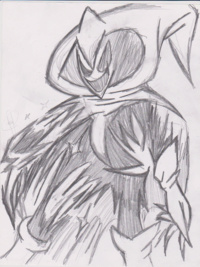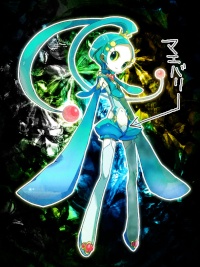| Movie (Film) | Topics | Posts | Last Posts |
|---|
 |
Documentary: a feature-length or near-feature-length film depicting a real-world event or person, told in a journalistic style (if told in a literary narrative style the result is often a docudrama). Examples: Hoop Dreams, The Thin Blue Line (documentary).
Dramality: a combination of television drama and reality television genres[14][15] (e.g., the soap opera The Only Way Is Essex[16]).
Educational: helps kids learn their basics to go through school.
Factual television: non-fiction television programming that documents actual events and people. These type of programs are also described as documentary, television documentary, observational documentary, fly on the wall, docudrama, and reality television. Although the genre has existed in some form or another since the early years of television, the term factual television has most commonly been used to describe programs produced since the 1990s.
Game show: depicting a real contest, typically a trivia competition or physical challenge, with rewards in prizes or money. The players may include celebrities, who can be found on such game shows as Match Game, Hollywood Squares, Hollywood Game Night and Celebrity Name Game. More often the participants are ordinary "everyday" people, such as Let's Make a Deal, Wheel of Fortune, Jeopardy!, and The Price Is Right.
Instructional: the use of television programs in the field of distance education. Educational television programs on instructional television may be less than one half hour long (generally 15 minutes in length) to help their integration into the classroom setting. These shows are often accompanied by teachers' guides that include material to help use this program in lessons. Instructional television programs are often shown during the daytime on Public Broadcasting Service (PBS) stations in the United States. However, fewer public television stations devote their airtime to ITV today than they do in the past; these days, ITV programs are either seen on a digital subchannel of Non-commercial educational public television station, or passed on to a local educational-access television channel run by a Public, educational, and government access (PEG) cable TV organization.
Music television: where viewers listen to music on the television similar to a radio station apart from commonly having a visual or complete music video.
News show: depicting real, up-to-date events
Current Affairs: Broadcast journalism where the emphasis is on detailed analysis and discussion of a news story.
Tabloid television: (also known as Teletabloid) a form of tabloid journalism. Tabloid television newscasts usually incorporate flashy graphics and sensationalized stories.[citation needed] Often, there is a heavy emphasis on crime, stories with good video, and celebrity news. It is a form of "infotainment."
Public affairs (broadcasting): This refers to radio or television programs which focuses on matters of politics and public policy. Among commercial broadcasters, such programs are often only to satisfy Federal Communications Commission (FCC) regulatory expectations and are not scheduled in prime time. Public affairs television programs are usually broadcast at times when few listeners or viewers are tuned in (or even awake) in the US, in time slots known as graveyard slots; such programs can be frequently encountered at times such as 5–6 a.m. on a Sunday morning.
Religious: produced by religious organizations, usually with a religious message. It can include church services, talk/variety shows, and dramatic movies. Within the last two decades, most religious programming is found on religious television networks.
Reality: A purportedly unscripted show (although evidence suggests that some scripting or manipulation occurs) featuring non-actors interacting with each other or dealing with invented or contrived challenges, such as competing against others for a prize. Produced in a similar fashion as the documentary film genre, but with more emphasis on the showing of interpersonal conflict, emotional reactions, or unusual occurrences. The genre has numerous widely varying subgenres (see main article).
Stand-up comedy: A style in which a comedian performs in front of a live audience, speaking directly to them. The performer is commonly known as a comic, stand-up comic, stand-up comedian or simply a stand-up. In stand-up comedy the comedian usually recites a fast-paced succession of humorous stories, short jokes called "bits", and one-liners, which constitute what is typically called a monologue, routine or act. Some stand-up comedians use props, music or magic tricks to enhance their acts. Stand-up comedy is often performed in comedy clubs, bars, neo-burlesques, colleges, and theaters. Outside of live performance, stand-up is often distributed commercially via television, DVD, and the internet.
Sports: The coverage of sports as a television program, on radio and other broadcasting media. It usually involves one or more sports commentators describing the events as they happen, which is called "colour commentary."
Talk show: A television show in which one person (or a group of people) discuss various topics put forth by a talk show host. Usually, guests on a talk show consist of a group of people who are learned or who have great experience in relation to whatever issue is being discussed on the show for that particular episode.
Tabloid talk show: A tabloid talk show is a subgenre of the talk show genre. On this type of talk show, the host invites either a guest or a group of guests to discuss provocative topics. Such topics can range from marital infidelity to more outlandish topics. Additionally, the guests are encouraged to make public confessions, and even resolve their issues via on-camera "group therapy."[17]
Television documentary: A genre of television programming that broadcasts documentaries.
Variety show: Also known as variety arts or variety entertainment, this is an entertainment made up of a variety of acts (hence the name), especially musical performances and sketch comedy, and normally introduced by a compère (master of ceremonies) or host. Other types of acts include magic, animal and circus acts, acrobatics, juggling and ventriloquism. Variety shows were a staple of anglophone television from its early days into the 1970s, and lasted into the 1980s. In several parts of the world, variety TV remains popular and widespread.
 Live-Action, Live-Action,  Stand-Up Comedy, Stand-Up Comedy,  Public Affairs Public Affairs | 0 | 0 | |  |
Anthology series: presents a different story and a different set of characters in each episode. These usually have a different cast each week, but several series in the past, such as Four Star Playhouse, employed a permanent troupe of character actors who would appear in a different drama each week. Some anthology series, such as Studio One, began on radio and then expanded to television.
Children's series: Aimed at children and families.
Cooking show: A television program which presents food presentation in a kitchen television studio. Over the course of the program, the show's host, who is usually a celebrity chef, prepares one or more dishes over the course of the episode. The chef takes the viewing audience through the food's inspiration, preparation, and stages of cooking.
Court show: A court show is a television programming subgenre of either legal dramas or reality legal programming. Court shows present content mainly in the form of legal hearings between plaintiffs and defendants, which are presided over by a pseudo-judge. Court shows first arose in the United States, and are still predominantly found in the country today.
Infomercials: Also known as Direct Response TV (DRTV), these are television commercials which generally include a phone number or website. There are long-form infomercials, which are typically between 15 and 30 minutes in length, and short-form infomercials, which are typically 30 seconds to 120 seconds in length. Infomercials are also known as paid programming (or teleshopping in Europe). This phenomenon started in the United States where infomercials were typically shown overnight (usually 2:00 a.m. to 6:00 a.m.), outside of prime time commercial broadcasting peak hours. Some television stations chose to air infomercials as an alternative to the former practice of signing off. By 2009, most US infomercial spending is during early morning, daytime, and evening hours.
Miniseries and Television movies
Serial: A television show which is one continuous story. Each episode picks up from where the last one left off. The story may shift with a new season.
Soap opera: Usually on every day of the week instead of once a week. Some can go on for over 50 years. Examples: Guiding Light, As the World Turns, All My Children, Days of Our Lives, General Hospital, The Young and the Restless, EastEnders and Coronation Street
Telenovela: A serial melodrama popular in Latin America and the Philippines. They are similar to a soap opera in miniseries format. They often feature Love and Drama, as well as other situations depending on the genre of telenovela. Examples include: Desire (TV series), Fashion House and Wicked Wicked Games.
Dizi (tr): A serial period or contemporary drama produced in Turkey and broadcast weekly in Turkey, the Balkans, the Middle East, Central Asia and other regions. Depending on the audience they may be dubbed or sub-titled. Examples include: Muhteşem Yüzyıl, Binbir Gece and Gümüş. See Turkish television drama.
Specialty channels are commercial broadcasting or non-commercial television channel which consists of television programming focused on a single genre, subject or targeted television market at a specific demographic. The number of specialty channels has greatly increased during the 1990s and 2000s while the previously common concept of countries having just a few (national) TV stations addressing all interest groups and demographics became increasingly outmoded, as it already had been for some time in several countries. About 65% of today's satellite channels are specialty channels.
 Channels, Channels,  Series (Serial), Series (Serial),  Miniseries, Miniseries,  Commercial (Advertising), Commercial (Advertising),  Program Program | 2 | 2 |  Program: Classic... Program: Classic...
Mon Apr 11, 2022 6:51 am
The Omnipedia  |  | a feature-length or near-feature-length film depicting a real-world event or person, told in a journalistic style (if told in a literary narrative style the result is often a docudrama).
| 0 | 0 | |
 | Announcement & Sticky | Replies | Author | Views | Last Posts |
|---|
 |  | | 3 | The Tensei | 1374 |  Tue Oct 02, 2018 9:17 pm Tue Oct 02, 2018 9:17 pm
Grand Panda  |  |  |
The Veritas | 3 | The Tensei | 334 |  Tue Jun 05, 2018 12:47 pm Tue Jun 05, 2018 12:47 pm
Tomon  |  |  |
Main Storyline | 6 | The Veritas | 966 |  Sat May 26, 2018 2:47 pm Sat May 26, 2018 2:47 pm
The Veritas  |  |  |
-Service- | 0 | Tear M. Lacrimoso | 323 |  Thu Nov 02, 2017 1:39 pm Thu Nov 02, 2017 1:39 pm
Tear M. Lacrimoso  |  |  |
Transmorphoghost Chronicles | 3 | The Phantom | 788 |  Fri Oct 28, 2016 12:44 pm Fri Oct 28, 2016 12:44 pm
The Phantom  |  |  |
Cause & Effect | 10 | Meikyuu | 338 |  Wed Mar 16, 2016 8:45 am Wed Mar 16, 2016 8:45 am
Meikyuu  | |  |  | | 0 | The Omnipedia | 85 |  Thu Jun 09, 2022 7:20 am Thu Jun 09, 2022 7:20 am
The Omnipedia  |  |  | | 2 | The Omnipedia | 92 |  Mon Jun 06, 2022 5:20 pm Mon Jun 06, 2022 5:20 pm
The Omnipedia  |  |  | | 0 | The Omnipedia | 80 |  Fri Jun 03, 2022 8:29 am Fri Jun 03, 2022 8:29 am
The Omnipedia  |  |  | | 0 | The Omnipedia | 116 |  Wed Dec 22, 2021 2:30 am Wed Dec 22, 2021 2:30 am
The Omnipedia  | |
| | Users browsing this forum: None
| | Moderators: | None | | Permissions in this forum: | You cannot post new topics in this forum
You cannot reply to topics in this forum
| |
| Users browsing this forum: None
| |
| |  New posts New posts
![New posts [ Popular ]](https://2img.net/s/t/18/27/95/i_folder_new_hot.png) New posts [ Popular ] New posts [ Popular ]
![New posts [ Locked ]](https://2img.net/s/t/18/27/95/i_folder_lock_new.png) New posts [ Locked ] New posts [ Locked ] |  No new posts No new posts
![No new posts [ Popular ]](https://2img.net/s/t/18/27/95/i_folder_hot.png) No new posts [ Popular ] No new posts [ Popular ]
![No new posts [ Locked ]](https://2img.net/s/t/18/27/95/i_folder_lock.png) No new posts [ Locked ] No new posts [ Locked ] |  Announcement Announcement
 Global announcement Global announcement
 Sticky Sticky
|
|
| |
